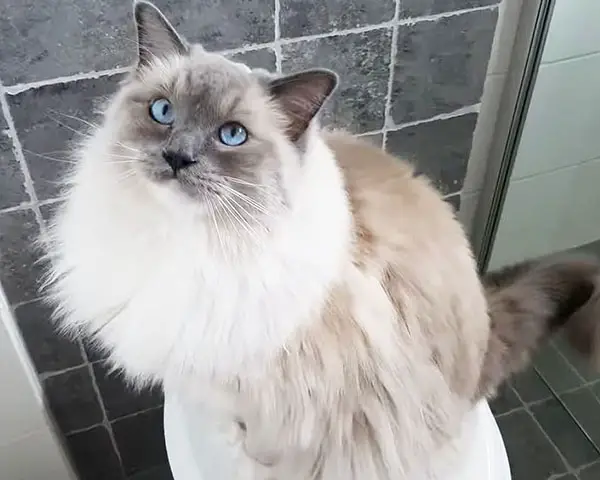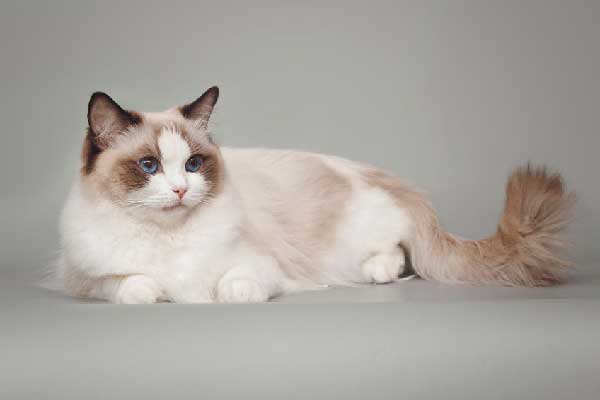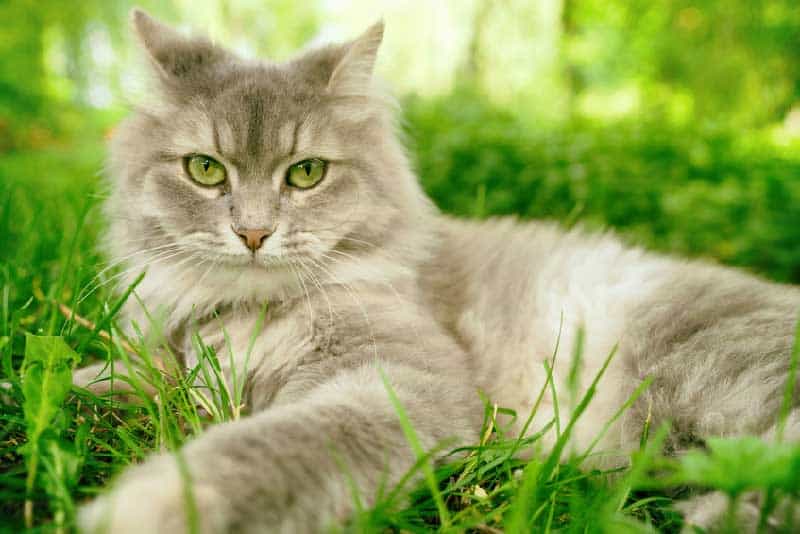The answer is that they have a life expectancy of 12-15+ years, and some have been known to live longer.
Ragdoll cats are known for their gentle and affectionate personalities, making them a popular choice for families. Their long lifespan means they can be a loving companion for many years.
However, like all cats, Ragdolls require proper care and attention to ensure they live healthy and happy life.
Ragdoll Cat Lifespan
Ragdoll cats are a healthy breed with an average lifespan of 12-15 years. However, with proper care and nutrition, they can live even longer.
Some Ragdoll cats have been known to live beyond 20 years old.
Indoor vs. Outdoor Lifespan
Outdoor cats of all breeds often only survive 2 to 5 years, while indoor cats usually live between 15 and 17 years. Ragdoll cats are no exception to this rule.
Indoor cats are less exposed to the dangers of the outside world, such as predators, traffic, and diseases. Therefore, indoor Ragdoll cats tend to live longer than outdoor ones.
Factors Influencing Lifespan
Several factors can influence the lifespan of a Ragdoll cat. Here are some of the most important ones:
- Nutrition: Feeding your Ragdoll cat a healthy and balanced diet is essential for their overall health and longevity. High-quality cat food that meets their nutritional needs is recommended.
- Weight Management: Obesity can lead to various cat health problems, such as diabetes, arthritis, and heart disease. Keeping your Ragdoll cat at a healthy weight can help them live a longer and healthier life.
- Regular Veterinary Care: Regular check-ups with a veterinarian can help detect and prevent health problems early on. Vaccinations, parasite control, dental care, and blood work are all important aspects of preventive care for your Ragdoll cat.
- Exercise and Enrichment: Regular exercise and mental stimulation are essential for your Ragdoll cat’s physical and mental health. Providing them with toys, scratching posts, and interactive playtime can help prevent boredom and keep them active.
- Genetics: Some health conditions, such as hypertrophic cardiomyopathy (HCM), are more common in Ragdoll cats than in other breeds. Therefore, choose a reputable breeder who screens their cats for genetic diseases.

Health Issues in Ragdoll Cats
If you’re considering getting a Ragdoll cat, be aware of the potential health issues affecting this breed.
While Ragdolls are generally healthy cats, you should know about a few genetic disorders and common diseases.
Genetic Disorders
Ragdoll cats are prone to genetic disorders affecting their health and lifespan. These include:
- Hypertrophic Cardiomyopathy (HCM): This is a heart condition that can cause thickening of the heart muscle and lead to heart failure. Ragdolls are at a higher risk of developing HCM than some other breeds.
- Polycystic Kidney Disease (PKD): This genetic disorder can cause kidney cysts, leading to kidney failure. Ragdolls are at a higher risk of developing PKD than some other breeds.
- Feline Lower Urinary Tract Disease (FLUTD): This condition can cause bladder and urinary tract inflammation, leading to painful urination and even blockage of the urethra. Ragdolls are at a higher risk of developing FLUTD than some other breeds.
Common Diseases
In addition to genetic disorders, Ragdoll cats risk developing some common diseases that can affect their health and quality of life. These include:
- Dental Disease: Ragdolls are prone to dental disease, which can cause pain, infection, and even tooth loss if left untreated.
- Obesity: Ragdolls are at a higher risk of becoming overweight or obese than other breeds. This can lead to various health problems, including diabetes, joint problems, and heart disease.
- Allergies: Some Ragdoll cats may develop allergies to certain foods, environmental allergens, or flea bites. This can cause itching, inflammation, and other uncomfortable symptoms.
Overall, Ragdoll cats are generally healthy and long-lived cats.
However, be aware of the potential health issues that can affect this breed so that you can take steps to prevent or manage them.

Caring for a Ragdoll Cat
Ragdoll cats are known for their affectionate and docile nature, making them great pets for families and individuals.
To ensure your furry friend lives a healthy and happy life, provide them with proper care. Here are some tips on how to care for your Ragdoll cat.
Diet and Nutrition
A healthy diet is essential for your Ragdoll cat’s well-being. Feed your cat high-quality cat food that is rich in nutrients and protein.
Avoid feeding them table scraps or human food, as it can cause digestive problems and lead to obesity.
Ragdoll cats are prone to overeating, so monitor their food intake and provide the appropriate amount.
Consult with your veterinarian to determine the right amount of food based on your cat’s weight, age, and activity level. Ensure your cat has access to fresh water at all times.
Change their water bowl daily to prevent bacteria growth.
Exercise and Play
Ragdoll cats are generally inactive but provide regular exercise and play to keep them healthy and prevent obesity.
Provide your cat with toys encouraging physical activity, such as catnip or interactive toys. Set aside a specific time for play and exercise with your cat each day.
This can include playing with a laser pointer, throwing a ball, or engaging in other interactive games.
Regular Vet Check-Ups
Regular veterinary check-ups are essential to keep your Ragdoll cat healthy and prevent potential health problems.
Schedule annual check-ups with your veterinarian to ensure your cat is up-to-date on vaccinations and to detect any health issues early on.
During check-ups, your veterinarian will perform a physical examination, check your cat’s weight, and assess their overall health. They may also recommend additional tests or procedures, such as dental cleanings or blood work.
In addition to annual check-ups, take your cat to the vet if you notice any changes in their behavior or if they show signs of illness, such as vomiting, diarrhea, or lethargy.

